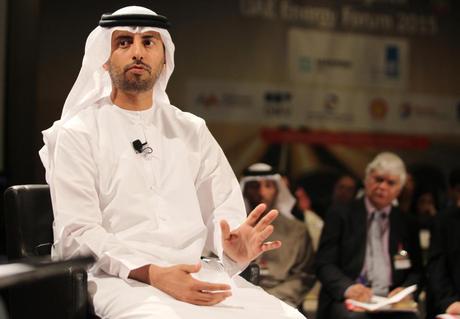UAE Energy Minister: Oil Prices to Have 'Correction' in 2016

Low global oil prices will have a "correction" in 2016, but it won't be solely OPEC that helps to raise prices that have dropped over 50 percent, the United Arab Emirates' energy minister said Monday.
The oil-rich Emirates will raise daily production to 3.5 million barrels in the coming years, Minister Suhail Mohamed al-Mazrouei said at the start of the Abu Dhabi International Petroleum Exhibition and Conference.
The Emirates currently produces about 2.9 million barrels of oil a day. It was the world's sixth-largest oil producer in 2014, according to the U.S. Energy Information Administration.
Global prices have fallen by more than 50 percent since the middle of last year. Fluctuating oil prices are nothing new to the Mideast, but Gulf economies that rely heavily on the sector may begin to feel the strain of lower prices if they continue into the next year.
"This is a time of some hesitancy, a time of pain for some," al-Mazrouei said. "But that pain is not new in this industry. We all know it, we've been through it and we will pass it stronger."
Several factors could keep prices low, including stepped-up U.S. production from shale oil and an expected flood of Iranian exports once sanctions are lifted under a landmark nuclear deal.
Al-Mazrouei didn't elaborate on how global oil prices would rise, other than to say OPEC wouldn't be able to do it alone.
"Don't ask me how big (it will be), the market will decide that," he said. "Everyone has a role to play."
The energy minister also said the UAE plans to increase its output to 3.5 million barrels.
"It's not to over-flood the market, but to balance the market when needed," he said.
The UAE will have that 3.5 million barrel production in the "next two to three years," said Abdulla Nasser al-Suwaidi, the director-general of the Abu Dhabi National Oil Co.



